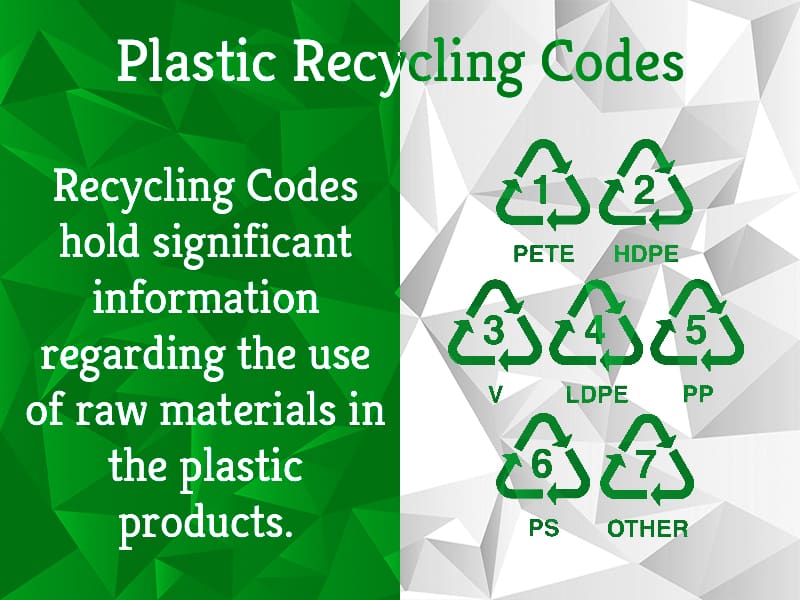Plastic Recycling Codes group plastics in 7 Major Categories based on the raw materials used.

The use of Recycling Codes has become increasingly popular to facilitate easier recycling, reusing or reprocessing of materials like plastic. Recycling Code is usually indicated by a symbol of chasing arrows logo with a number within it. Recycling Codes only indicate the constituent raw materials of a particular item or product and not the fact whether the material is recyclable.
Based on different applications, there are several types of plastics which are available. Some of these plastics may contain harmful chemicals and might not be suitable for standard recycling or reprocessing purposes.
Plastic Recycling Codes categorize all the various plastics into 7 major groups for easier and faster recycling and reprocessing. Because the codes indicate the constituent raw materials, recyclers can quickly learn about the plastics biodegradability or how likely is the plastic to leech and so on.
Here’s What they Mean:
| Plastic Recycling Codes | Type | Properties | Uses/Applications | Recyclable |
|---|---|---|---|---|
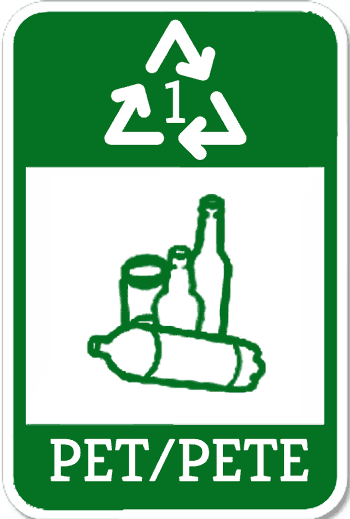 | Polyethylene Terephthalate | -Clear -Light-Weight -Gas & Moisture Barrier -Single Use -Cannot be Heated | -Bottles for Water -Bottles for Carbonated Drinks -Bottles for Coconut Oil -Jars for Peanut Butter | YES (Can be Recycled Once) |
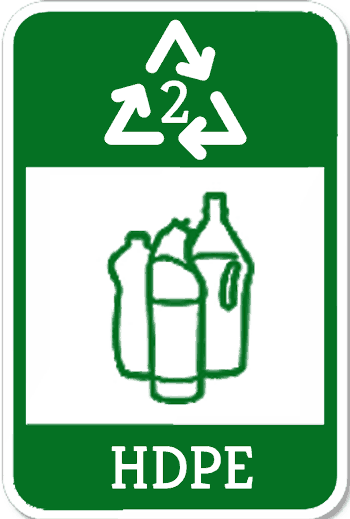 | High Density Polyethylene | -Thick -Opaque -Thermoforming Type -Light-Weight -High Degree of Impact Resistance -Chemical & Corrosion Resistant -High Tensile Strength | -Orthotic & Prosthetic Devices -Tanks -Light Weight Chain Guides -Water Storage Tanks | YES (Recycled into Secondary Products) |
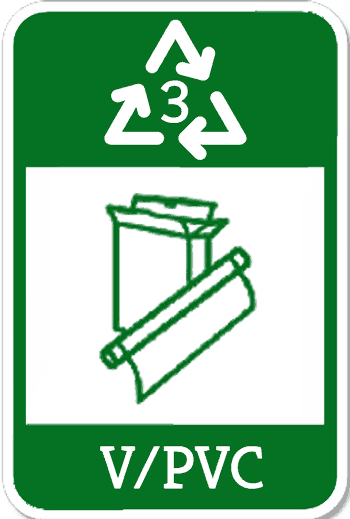 | Polyvinyl Chloride | -Hard -Opaque -Highly Versatile -High Mechanical Strength -Easily Blendable | -Packaging Materials (Non Food) -Rigid Piping -Electrical Insulation -Vinyl Records | NO (Contains Potent Carcinogens, Hormone Disrupting Chemicals) |
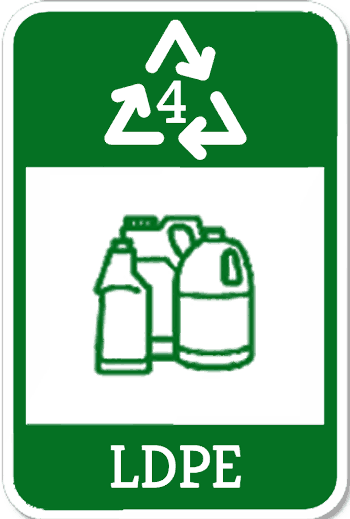 | Low Density Polyethylene | -Soft -Flexible -High degree of Mechanical Strength -Gas & Moisture Barrier | -Squeezable Bottles -Cling Films -Packaging for Frozen Foods -Flexible Container Lids | YES |
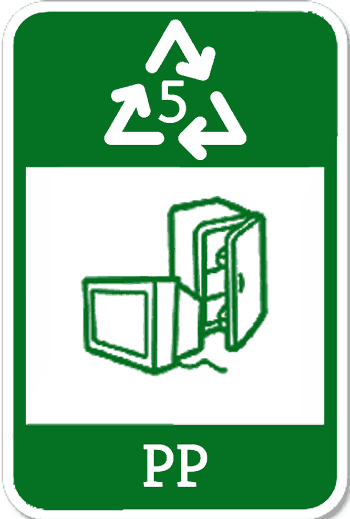 | Polypropylene | -Hard -Flexible -Heat Resistant -Chemical, Grease & Oil Resistant -High Mechanical Strength - | -Kitchenware -Reusable Microwave-ware -Aerated Drink Bottle Caps -Microwavable Take-Away Containers -TV Housings | YES |
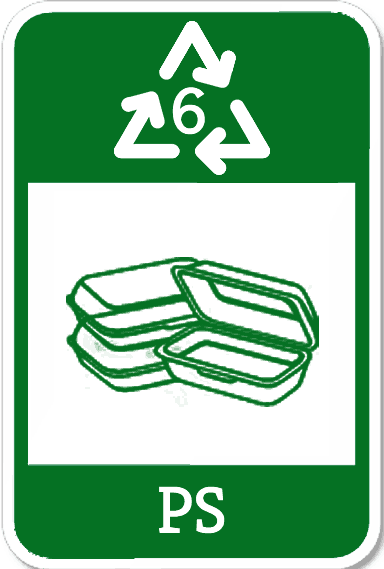 | Polystyrene | -Rigid -Opaque -Thermoforming Type | -Egg Cartons -Disposable Cups & Plates -Disposable Take-Away Containers | NO (Contains Neurotoxins) |
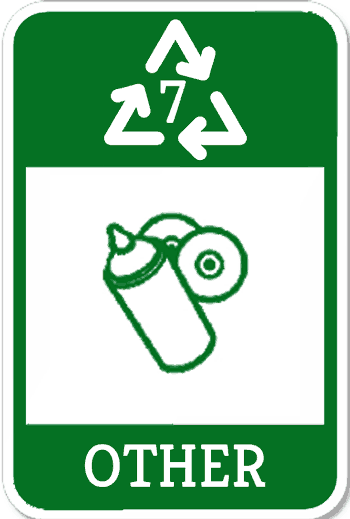 | Other: Polycarbonate BioPlastics ABS Acrylic | -Cannot be Heated | -Baby Milk Bottles -Compact Disks -Electronic Apparatus Housing -Sunglasses -Prescription Glasses -Riot Sheilds | NON STANDARD |
Which are Safe & Which to Avoid
It is always better to reduce dependency on plastics and avoid as much as possible. Since it is not possible to stop using plastics completely, Plastic Recycling Codes helps us identify plastics that are safe to recycle and ones that cannot be.
- Plastics with Codes 3,6 and 7 cannot be recycled under standard recycling procedures and may pose harm to health and the environment. These should be Avoided.
- Plastics with Code 1 is considered safe to recycle, but it can be recycled only once. It is always advisable to avoid this type.
- Plastics with Codes 2,4 and 5 are considered safest to recycle.
The Future of Plastics
The packaging industry is slowly moving towards eco-friendly designs by reducing the use of non-recyclable materials. In cities like Mumbai, awareness is growing around better disposal and sorting practices. Plastic resin codes help consumers identify the recyclability of materials used in everyday products. Clear symbols on packaging now guide users on what can be recycled. Understanding the plastic bottle code can ensure smarter choices when purchasing packaged goods. Designers are also being encouraged to consider recyclability from the beginning. Checking plastic water bottle safety codes is a good way to avoid unsafe or low-grade plastics. India is gradually embracing the best recycling practices, with top plastic codes leading the way toward a cleaner, more sustainable future.
